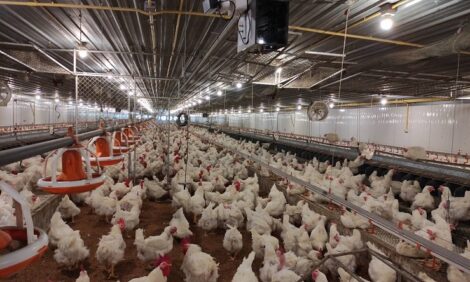



Bird Flu Control Zone Set up in Canada; Seven Countries Ban Imports
CANADA - The Canadian Food Inspection Agency (CFIA) has established a primary control zone to prevent the spread of H5N2 highly pathogenic avian influenza in British Columbia, while seven countries have banned poultry imports from the region.The Province of British Columbia and the poultry industry support this decision and are working together with the CFIA to implement a primary control zone in the area where the disease has been identified - Fraser Valley.
Avian influenza is highly contagious between birds and can spread rapidly. Because southern British Columbia has a high concentration of poultry operations, the primary control zone covers an area beyond the premises that are currently affected.
The primary control zone is bordered on the west by the Pacific Ocean, on the south by the United States border, on the north by Highway 16, and on the east by the border between British Columbia and Alberta.
The primary control zone is divided into three disease control zones: infected, restricted and security. The three zones represent relative levels of risk and movement restrictions vary accordingly. Most of the restrictions apply to the infected and restricted zones because of the greater potential that the virus can spread.
Within the primary control zone, there are three disease control sub-zones: infected, restricted and security.
- The outer boundary of an infected zone is up to 3km from any known infected premises
- The restricted zone is established surrounding the infected zone and measured based on the epidemiology of the disease in order to prevent the spread of avian influenza (3km to 10km)
- The security zone is the remainder of the primary control zone (beyond 10km).
The movement restrictions apply to:
- captive birds (including but not limited to poultry, fowl and pet birds)
- poultry products or by-products
- anything that has been exposed to captive birds (which could include but is not limited to feed, vehicles, equipment or clothing).
All movement of captive birds in and out of, and through this zone is strictly controlled and requires a permitfrom the CFIA. The movement restrictions also apply to poultry products and by-products and material that has come into contact with captive birds.
Avian influenza viruses do not pose risks to food safety when poultry and poultry products are properly handled and cooked. Avian influenza rarely affects humans that do not have consistent contact with infected birds. Public health authorities stand ready to take precautionary measures as warranted.
Poultry farmers are urged to take an active role in protecting their flocks by employing strict biosecurity measures on their property, and immediately reporting any suspicious symptoms to the CFIA.
Over the last weekend, National Post reports that as many as 140,000 chickens and turkeys had been destroyed by crews at the five farms in British Columbia that have been confirmed with the infection.
As many as 90 additional poultry farms fall within the 3-km-wide quarantine zones established around the infected farms.
The stocks at these other farms will not be culled if no evidence of avian flu is found, but they are subject to the strict conditions about moving their birds out of the Fraser Valley.
On 6 December, the United States banned the import of all British Columbia poultry products. Taiwan, Japan, South Korea, China, South Africa and Mexico have also cut off poultry imports from the affected province or all of Canada, National Post adds.








